At so many football clubs, means and ambition are so starkly in contrast.
All have aspirations to compete at the highest level possible, to win trophies. For some, their wish is merely to survive. Sustainability in itself is the biggest victory of all.
That is certainly the case with Drogheda United, where for the last three seasons, first under Tim Clancy and now with Kevin Doherty at the helm, they have continually punched above their weight as a part time outfit in an increasingly professional league.
With one round of fixtures to play in the Premier Division, they are sure of finishing above both Sligo Rovers and Cork City, full time teams with budgets that far dwarf that at Drogheda's disposal.
2024 will mark the dawn of a new era for the club. They stand on the verge of a takeover. Trivela Group, the American/Canadian owners of Walsall FC will be in charge, pending a member vote in less than one weeks’ time.
The imminent acquisition of the club by the US-based sports investment firm comes after 12 months of discussions and due diligence undertaken on both sides, a process recently completed.
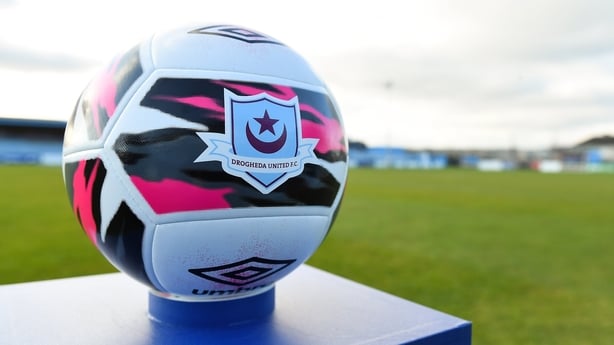
Other interested parties emerged from as diverse a geographical spread as the United Arab Emirates, Turkey, the United Kingdom, China and here at home too.
As is the case at Walsall, Trivela Group Managing Director Benjamin Boycott will assume the role of co-chairperson at Drogheda United, sharing the job with Joanna Byrne. However, unlike at the English club, they are bringing in an Executive Director, Wesley Hill, to oversee day-to-day operations.
Exactly how hands on he will be is a point of particular interest. Hill has formerly worked at Nike and has extensive experience in the startup sector.
Matt Jordan, a 48-year-old former Major Soccer League goalkeeper who has spent over a decade holding General Manager and Technical Director positions at Houston Dynamo and Montreal Impact, is also involved.
Interestingly, Trivela say he will work to implement the organisations technical processes within the club 'under the guidance of Manager Kevin Doherty’. How much autonomy Doherty will be given in making sporting decisions at the club will undoubtedly sway supporter opinion of the new owners.
Doherty and assistant Daire Doyle are feted by United supporters for how seamlessly they have cemented the club’s Premier Division status across the last two seasons, often flying in the face of key personnel losses and predictions of struggle.
Drogheda’s propensity for bloodying the noses of the league’s best teams – they have beaten each of champions Shamrock Rovers, Derry City and St Patrick’s Athletic away from home this season – has underpinned their three seasons in the top flight since promotion in 2020.
The work Doherty has done in that time leaves him in a position of strength at a moment when major investment could be a game-changer for his club.
One of Boycott’s favourite terms when discussing Trivela’s venture into multi-club ownership is ‘synergy’. Player movement, shared commercial opportunities and an ability to reduce administrative costs by sharing resources across clubs are key pillars of the strategy.
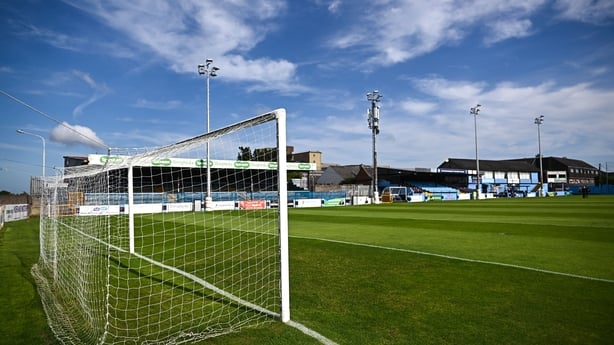
Expect to see Drogheda and Walsall mentioned in the same breath for some time to come, at least until the owners add a third and fourth club to their growing portfolio.
Their purchase of Drogheda – with a view to helping the club make the move to a full time, professional set-up in the near future and facilitating a move to a new stadium in time – has generated excitement on the banks of the river Boyne.
Supporters see this as the dawn of a hopeful new era, where security and sustainability trumps austerity or recklessness. How do Walsall supporters view the purchase of Drogheda, however? The news has received a mixed reaction.
With a capacity of 11,300, Walsall’s Poundland Bescot Stadium is among the largest stadiums in England’s fourth tier, where the club have competed since their 11-year stay in League One ended in 2019.
The last time either Walsall or Drogheda United enjoyed league success was in 2007 – as the Saddlers secured the League Two title months before Drogheda enjoyed their to date only Premier Division success under Paul Doolin.
Matt Sadler’s current Walsall team have a strong Irish connection, with former Republic of Ireland Under-21 pair Oisín McEntee and Ross Tierney, the latter on loan from Scottish Premiership outfit Motherwell, forming a key part of the side’s core.
Dublin-born David Okagbue is also on loan at Walsall, from Stoke City, and their borrowed contingent is boosted further by former Drogheda striker Freddie Draper, who starred so eye-catchingly for United in the first five months of the season.
Among supporters, the feedback on Trivela’s first 18 months of ownership is positive but the prevailing sentiment among the fanbase appears to be ‘time will tell.’
When new owners offer a long term blueprint for both clubs, talking in terms of decades and generations more so than mere transfer windows and seasons, reaching conclusions can be difficult. Football, in this sense, becomes a waiting game.
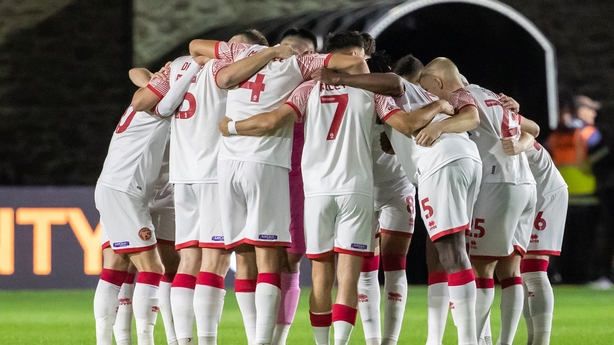
What both Drogheda and Walsall supporters will not want is for Trivela’s long term strategy to allow the can of accountability to be kicked down the road indefinitely.
The link-up with a League of Ireland club has barely even registered for many in truth, but some have offered their take. Tom Marlow is a broadcaster for BBC Radio West Midlands, who covers Walsall, as well as neighbouring Aston Villa. He describes Trivela Group as a "breath of fresh air."
"Fans have certainly looked at it and talked about it," he says. "A few supporters commented that they hoped the focus wouldn’t be too great on Irish football and take their eye off the ball at Walsall. That might be a small section of fans on social media.
"Walsall fans on the whole, certainly the ones I’ve heard on our phone-ins, feel that we can use this partnership to blood a few promising and positive players from the League of Ireland, it could be a really good situation."
Reflecting on their early work at the West Midlands club, Marlow offers a favourable report card.
"On the field, the big issue in the in-tray was they got relegated in 2019. Walsall have played more football at the third tier level than any other club. They have traditionally been a League One club, that 20 years ago, played Championship football," he says.
Barry Landy discussed the takeover on the RTÉ Soccer Podcast
"They famously finished above Manchester City in the Second Division table in 1998/99 – getting promoted automatically with Fulham while Man City went up in the playoffs.
"The biggest goal for Trivela, and the fans are desperate for it, is to get Walsall back up to the third tier of English football.
"There might come a time that people will get a little bit frustrated because fans are used to welcoming bigger teams to the Bescot. Being at this level is, in the supporters view, something they need to change quite quickly."
"Supporters see the owners as a breath of fresh air in how they are trying to improve the matchday experience. In the summer of 2022, there was a feelgood factor. They talked positively, knowledgably and enthusiastically. Ultimately, on the field, we need to see positive signs in terms of being at the top of the table."
A stroll around the Bescot Stadium exterior offers a glimpse into the improvement work undertaken by Trivela Group. The recently refurbished club shop offers merchandise ranging from club kits and leisure wear to pencil cases, duvet sets and baby romper suits.
The Walsall owners have ploughed in approximately £300,000 into facilities on the ground at the Bescot since their arrival – including a sizeable investment in the refurbishment of the Saddlers Club, a standalone building adjacent to the stadium itself, which housed a substantially sized, club-owned supporters bar until its closure in 2018.
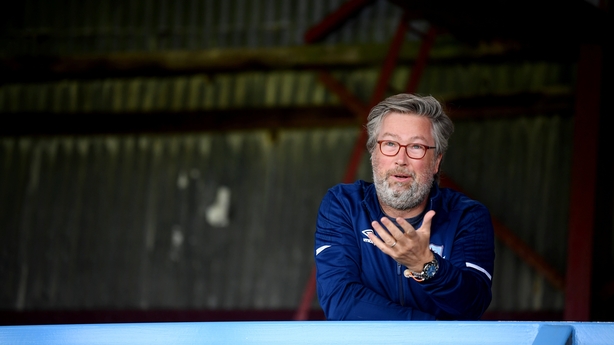
Whilst the newly renovated premises is not expected to be opened until later on in the season, artist renderings offer a glimpse of a modern, welcoming space which would be the envy of most clubs in the lower tiers of the English Football League.
It is much needed – the Bescot is located two miles from Walsall town centre. Served by its own train station and located next to a retail park, there are no pubs in the immediate vicinity.
Prior to its closure, the Saddlers Club bore the look of a rundown working men’s club – something more reminiscent of the 1970s than the 21st century.
Few, if indeed anyone, who has attended Weavers Park at any point in the last two decades would describe the Windmill Road venue as remotely modern, although club staff and volunteers do admirable work in making the old ground as hospitable as possible for matchdays.
Investing in supporter offerings and capitalising on commercial opportunities that arise is evidently a key pillar of the owners’ strategy – something they hope to bring to Drogheda, albeit at scale. The limited scope for additions to Weavers Park ties hands somewhat in this regard.
It does have a characterful charm, in it’s own way. It appeals in a sense but no one, new co-chairman Benjamin Boycott included, is under any illusions that the stadium should remain Drogheda’s long term home.
Progress on building a new stadium will be a measure of the owner’s success on Boyneside.
"It’s still very early days – all the signs are good," Walsall Supporters Trust chairman Trevor Reece says.
Within six months of their Saddlers takeover, the owners purchased the freehold of the Bescot Stadium, meaning the club were no longer beholden to annual rent payments in the region of £500,000 a year.
"Trivela won the hearts of supporters, that was what fans were pressing for, for a very long time," Reece continued.
"If they’ve bought Walsall to make money out of it, it’s a long, long way away from being that kind of thing. I doubt if Walsall have made a profit since the war. They expect to keep putting money into the club for years. There is no big money to be made here."
Off the pitch improvements aside, home supporters at the Bescot Stadium describe their team as "consistently inconsistent."
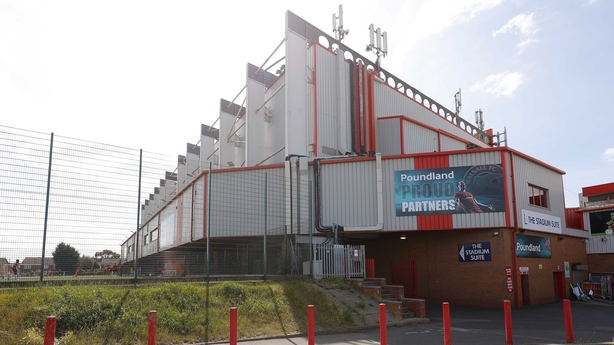
Mike Flynn was sacked towards the end of last season and ex-Walsall player Sadler, who played in the Premier League with Birmingham City, took over.
With the team currently sitting in 15th in League Two, it is legitimate to ask whether the feeling among supporters towards the owners changed in the last 18 months. Has support grown, waned or stayed the same?
"By and large, the feeling is still the same," Reece explains. "They’ve put money into the team. The squad is much stronger now than it has been in years."
A 94th minute equaliser denied Sadler’s Saddlers three points in front of their home support against Crawley Town last Tuesday evening – sending Reece, his fellow Supporters Trust members and the larger fanbase home despondent.
However, things appear upbeat on the whole – and in Draper, they have one of the leading young lights in the Football League. Across his spells in Drogheda and at Walsall this season, the 19-year-old has hit 15 goals in his last 23 appearances.
His night against Crawley ended prematurely though injury though, having struggled to get the better of the Red Devil’s Laurence Maguire, brother of Harry, who was in action just as his elder sibling was scoring against FC Copenhagen in the UEFA Champions League.
"We’ve all been coming since we were kids," Ray Dale, a lifelong fan and member of the Supporters Trust says.
"Historically, we’ve always been a League One club."
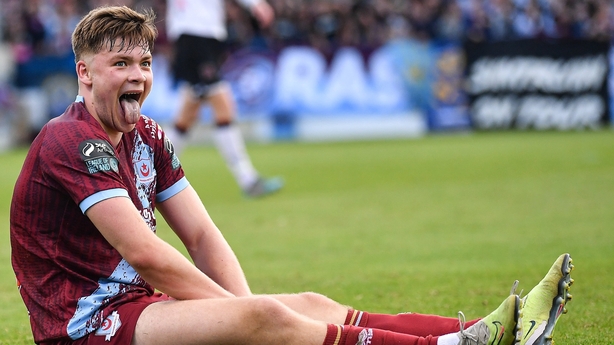
What do these Walsall supporters make of their club becoming stable mates of a League of Ireland side?
"It has been discussed on message boards," Dale says, alluding to the largely underwhelming online reaction to the news. But might Trivela’s multi-club model prove advantageous to Walsall?
"It’s more than possible," Deece says. "The feeling is we have to go back to where we were a few years ago where we have a useful academy here where we can bring on our own players."
That is one aspect of Boycott’s synergy plan that might benefit the Drogs – access to the best young talent from an EFL academy, in a similar vein to how they have previously seen youngsters Sean Roughan, Sam Long, Elicha Ahui and Draper arrive from Lincoln City and impress.
As Drogheda’s resources increase, so too will the on-field expectation. Just the thought of where it might take them is exciting fans in Ireland’s biggest town.
Now, the waiting game begins.
Listen to the RTÉ Soccer podcast on Apple Podcasts, Spotify or wherever you get your podcasts.
We need your consent to load this rte-player contentWe use rte-player to manage extra content that can set cookies on your device and collect data about your activity. Please review their details and accept them to load the content.Manage Preferences

